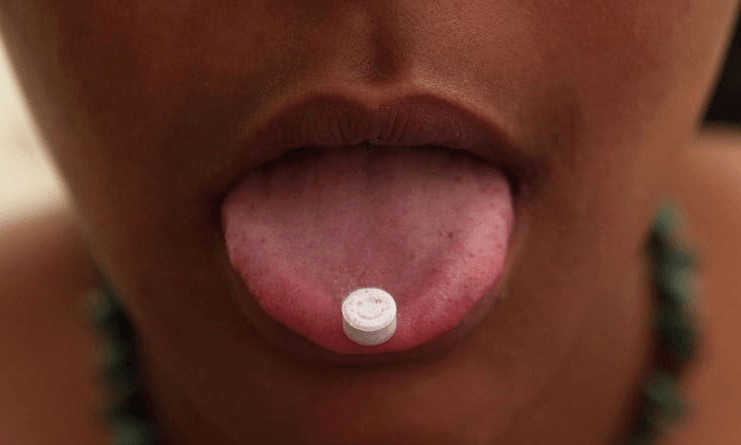The results of more than 400 drug tests from across the festival season are in. Who is eating what? Our essential explainer.
What’s all this then?
Volunteer drug testing agency KnowYourStuff’s annual results are in, cataloguing 445 substances tested with FTIR spectroscopy and reagents across seven festivals this summer.
What’s the skinny?
There’s more MDMA about, more of it is real, there are less bath salts being boofed and your ketamine is probably what it says on the packet. People are using less LSD, slightly more cocaine, and 40 percent of the 38 unknown substances tested weren’t psychoactive at all.
Overall, the percentage of samples that were what the user expected increased from 68 percent to 79 percent, driven largely by an increase in the quantity of genuine MDMA, as well as an overall increase in MDMA among the samples tested.
Almost 60 percent of samples brought in for testing were presumed to be MDMA, up from just over 50 percent last festival season. Of these, the percentage that were actually MDMA increased from 63 percent to 83 percent. This is a very good thing.
But there were also dangerously strong pills detected at more than one festival.
Dangerously strong pills? Which ones? For science.
Green Guccis and yellow Rolexes are believed to contain a larger than usual amount of MDMA. So too are pink Porsches: bright pink, shield-shaped pills embossed with the Porsche logo which may also contain ‘dangerous pharmaceutical agents’ in addition to high doses of MDMA.
KnowYourStuff founder Wendy Allison said they have seen “several pills weighing up to 580mg in which the main ingredient is MDMA, suggesting potentially two to three times the average dose.”
Just over twenty percent of the drugs that clients presented to KnowYourStuff were not what they expected. Forty percent of these were cathinones, or bath salts.
And one third of the cathinones found were n-ethylpentylone – a dangerous substance with a “seedy”, “cracky” high that hospitalised 13 people in Christchurch earlier this year, the first time New Zealand has seen a mass hospitalisation as a result of party drugs.
What’s happening on the acid front?
There were 77 samples submitted as indoles (a class that includes LSD, mushrooms, and DMT) and 86 percent were what they were thought to be. FTIR spectroscopy cannot detect LSD, so these results rely on reagent testing only – but mushrooms are not commonly brought to KnowYourStuff, and very few people are going through the ego-death of a DMT trip at a summer festy.
Only three samples of horrific pseudo-acid NBOMe were identified among the indoles, continuing the merciful downward trend of this heinous substance over the past two years.
So this drug testing, is it working?
Of those who had not seen KnowYourStuff before, 70 percent said that this visit was their first contact with a drug worker or drug health service – strongly suggesting that KnowYourStuff are reaching people who would not otherwise receive harm reduction advice.
And 58 percent of clients who learned their drugs weren’t what they thought ultimately decided they would not take them – a result consistent with previous years and a powerful endorsement of the necessity of drug awareness.
Pill testing is common at events and clubs in the US, UK and Europe. Organisations like Dancesafe in the US, Energy Control in Portugal, and The Loop in the UK operate openly. This has resulted in reductions in drug-related hospitalisations, early warning systems, and raised awareness of harm reduction among drug users.
Contrast this with Australia, where pill testing keeps being stymied and harsh enforcement is the norm, resulting in a number of drug deaths at recent events – including a 22-year-old man with 16 different substances in his body.
As KnowYourStuff say: “This is a no-brainer – when you give people accurate information about drugs, they make better choices.”
The Bulletin is The Spinoff’s acclaimed, free daily curated digest of all the most important stories from around New Zealand delivered directly to your inbox each morning.
